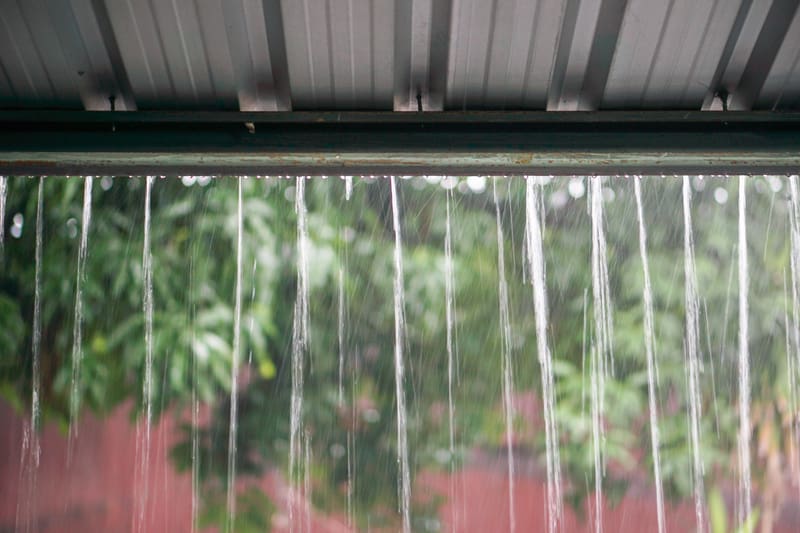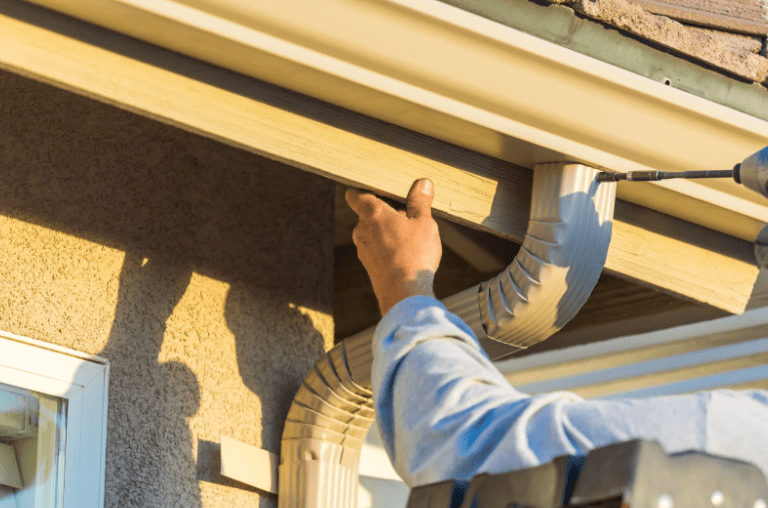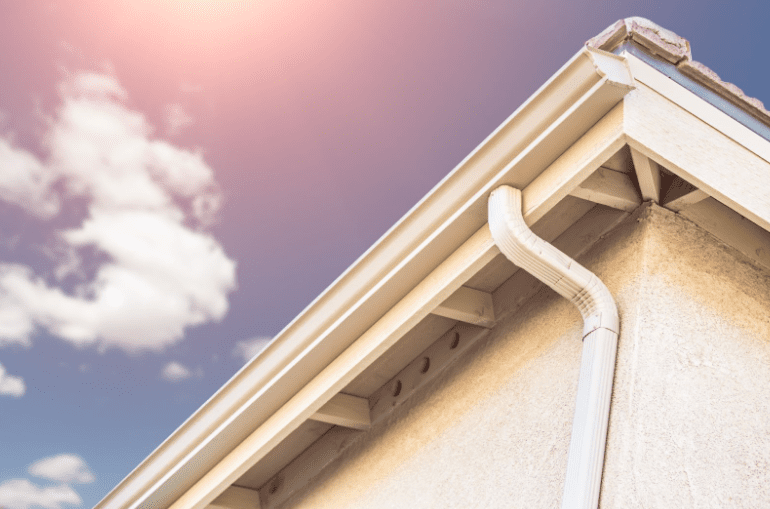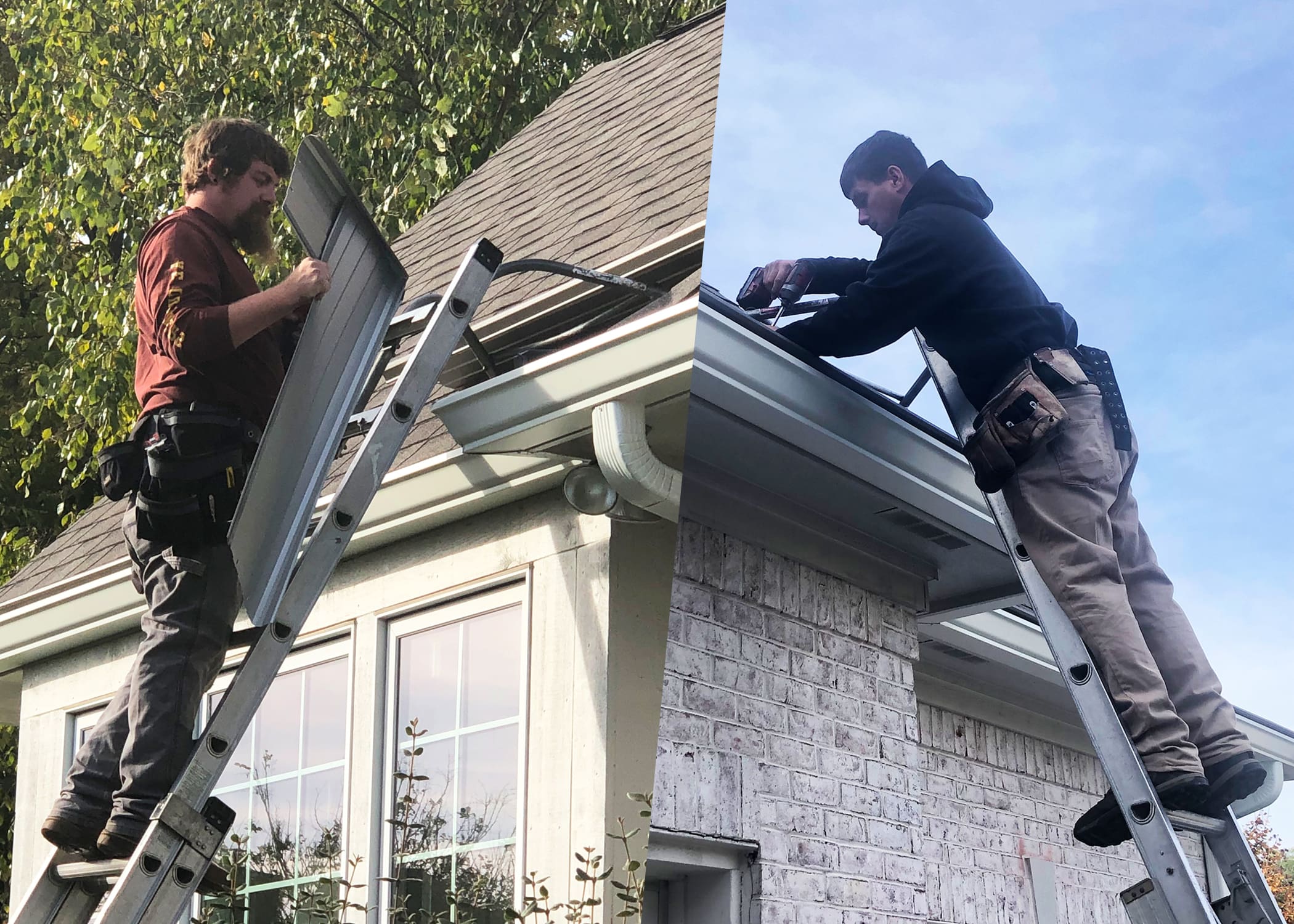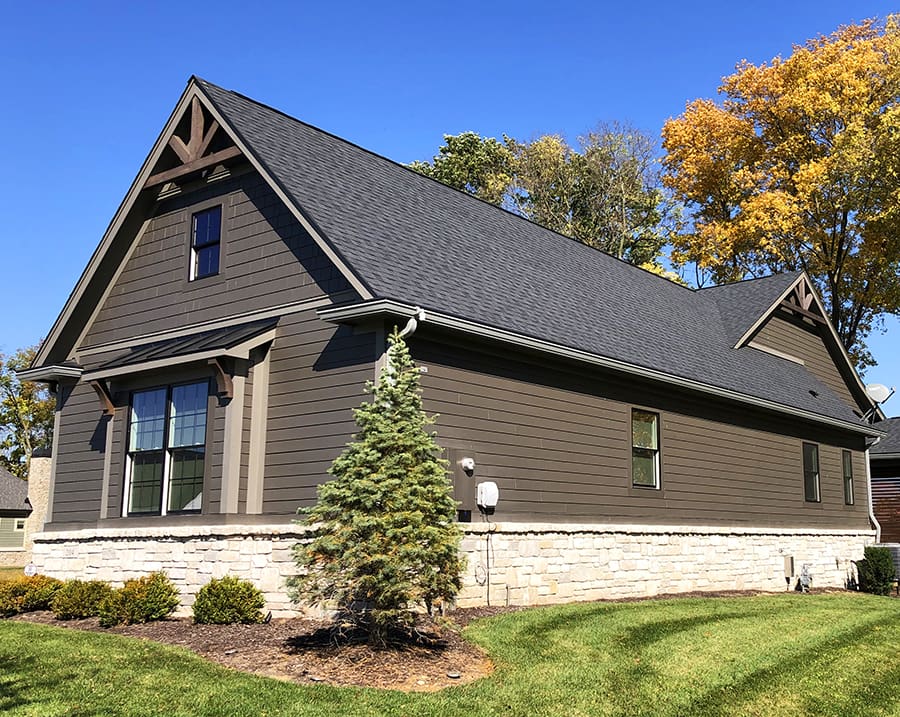When heavy rain occurs, it is not uncommon to witness gutter overflow. It is essential to understand the factors contributing to this occurrence and the potential consequences it can have on your property. We will look into the topic of gutter overflow during heavy rain, exploring the factors that affect it, the potential consequences, and the professional solutions available to address the issue.
Factors Affecting Gutter Overflow
Gutter overflow during heavy rain can be influenced by several factors. One key factor is the size and capacity of the gutters themselves. If the gutters are too small or lack the necessary capacity, they may struggle to handle the volume of water generated by heavy downpours. Improper installation, such as inadequate slope or pitch, can also contribute to gutter overflow. Clogged or blocked gutters and downspouts are another common cause of overflow. Debris such as leaves, twigs, and dirt can accumulate in the gutters over time, obstructing the flow of water. This accumulation prevents proper drainage, causing water to overflow from the gutters instead.
Consequences of Gutter Overflow
Gutter overflow during heavy rain can lead to various consequences for your property. The most immediate concern is water damage. Overflowing water can seep into the foundation, potentially causing cracks or structural issues. It can also result in basement flooding, which can be costly to repair and may damage valuable belongings. Overflowing water can erode the soil around the foundation and damage exterior surfaces. Excessive water runoff due to gutter overflow can also affect the landscaping around your property. Erosion can occur, washing away soil and damaging plants, flowers, and shrubs. The excess water can create unsightly puddles or pools near the foundation, posing a potential hazard.
Professional Solutions
When gutter overflow occurs during heavy rain, seeking professional solutions is advisable. A professional gutter installer or contractor can assess the gutter system and recommend appropriate measures. One solution might involve installing larger gutters with a higher capacity to handle heavy rainfall. Downspouts can also be added to distribute water more evenly and prevent overflow. Adjusting the gutter slope or pitch can improve water flow, ensuring proper drainage. Regular maintenance is vital to prevent gutter overflow. Clearing debris and keeping gutters and downspouts clean will help maintain unobstructed water flow. Installing quality gutter protection can be an effective preventative measure, reducing the chances of clogs and minimizing the risk of overflow.
While gutter overflow during heavy rain is not uncommon, it is important to address the issue to protect your property from potential water damage. Factors such as gutter size, capacity, installation, and blockages can contribute to overflow. The consequences of gutter overflow can range from foundation problems to landscaping damage. Seeking professional solutions and taking preventive measures, such as regular maintenance and installing gutter guards, can help mitigate gutter overflow and ensure proper rainwater management.
Remember, consulting with a professional gutter installeror contractor will provide expert advice tailored to your specific gutter system. By addressing gutter overflow and implementing appropriate solutions, you can safeguard your property and enjoy effective rainwater management even during heavy downpours.

